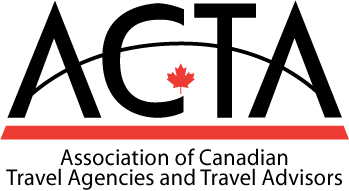Senate Pressed On Air Code
Staff, Blacklock's Reporter
Consumer advocates last night urged the Senate transport committee to quickly pass a federal passenger bill of rights. Canada is the only G7 country without statutory compensation owed travelers inconvenienced by flight delays, denial of boarding and lost luggage.
“It is time we do better when it comes to protecting Canadian air travelers,” said Ian Jack, managing director of communications for the Canadian Automobile Association. The six million-member Association provides travel services.
“The public is very supportive,” said Jack. “Our polling shows an overwhelming 91 percent of people surveyed agree it is time Canada had its own passenger code.”
Bill C-49 An Act To Amend The Canada Transportation Act would mandate minimum payments to air passengers for lost luggage, denial of boarding or flight delays. The bill requires that regulators with the Canadian Transportation Agency “establish clear standards of treatment for air travelers” and fix compensation rates.
John Lawford, executive director of the Public Interest Advocacy Centre, said passengers with legitimate service complaints must currently navigate a Byzantine process of checking airlines’ terms and conditions and filing grievances with the Transportation Agency. “This industry is allergic to treating its own customers with dignity,” said Lawford; “Airlines have been proven to behave inhumanely in the absence of such rules.”
Richard Vanderlubbe, chair of the Transportation Act review committee of the Association of Canadian Travel Agencies, said any bill of rights should include compensation for seat downgrades, and refunds on tickets that are not honoured by carriers in financial hardship. “There is definitely an imbalance of power between airlines and consumers that we think is an appropriate place for government regulation,” he said.
Vanderlubbe added the code should not punish airlines for service breakdowns beyond their control. “Many things can cause delays: slowdowns in security, slowdown with customs, the Canada Border Services Agency, air traffic control, gate readiness, de-icing, it goes on,” said Vanderlubbe.
Passenger codes in the U.S. and European Union promise travelers payments of up to $800 for cancelled flights, $1300 for flight delays of more than four hours, and up to $1800 for lost or damaged luggage. Bill C-49 contains no fixed compensation schedule.
“None of this stuff actually exists in the bill,” said Senator Terry Mercer (Liberal-N.S.). “It’s all going to come out in regulations later on. Do you think it would be better if we weren’t sitting here talking about something that is going to happen in the future, or looking at actual regulations that would go into a bill? We’re all suggesting what it should be, we’re all saying what it might be, but we’re not looking at what it’s going to be. It frustrates me that we’re talking about something that doesn’t exist.”
Cabinet has instructed the Agency to enact a compensation schedule by December 31 should the bill pass into law.
Black Hat For Airlines
The National Airlines Council of Canada said carriers cannot be faulted for disruptions caused by other transportation agencies or employers. “Imagine being caught in a tarmac delay,” said Massimo Bergamini, CEO. “You don’t know the cause. Often the pilot himself doesn’t know the cause. Was it caused because you had an air traffic decision to ground planes? Was it a mechanical failure? Was it a security issue? The passenger only knows they are delayed and might have missed their connection. How will they find themselves in this system?”
Bergamini described passenger codes in other G7 countries as a “penalty-driven, punitive system”: “The bill does a good job of putting a black hat on the airline industry,” he said.
Daniel-Robert Gooch, president of the Canadian Airports Council, said passengers may suffer denial of boarding due to delays at security screeners contracted by the Government of Canada. “This contributes to passengers missing flights,” said Gooch; “We do expect long wait times at screening will continue at peak travel periods.”
The Canadian Air Transport Security Authority in a 2017 Summary Of The 2017-2021 Corporate Plan said it anticipated longer lineups without more funding from Parliament. “Short of a long-term funding solution, this service level cannot be maintained,” said the Summary.
Senator Leo Housakos (Conservative-Que.) said Bill C-49 appeared reactive to media coverage of service incidents, rather than a mandate that airlines disclose what service passengers are owed. “I had an 8 am flight in Montréal to Hartford, I get to the counter, and they said, sorry, your flight is cancelled,” said Housakos. “I haven’t been called, I haven’t been emailed, I haven’t been notified in advance. It’s a beautiful, crystal clear day.”
“Quite frankly, I don’t care what my bill of rights is,” said Housakos. “Passengers want to know what the airlines’ obligation is to them.”
“Bill of rights, bill of obligations, at the end of the day, this is creating a prescriptive framework on airlines,” replied the Airlines Council’s Bergamini. “No less a capitalist haven as China favours a market approach to passengers. Their approach is about transparency, and the consumer chooses. You know, it works.”
OTHER RELATED STORY:
- Airlines Would Amend Bill - Blacklock's Reporter
